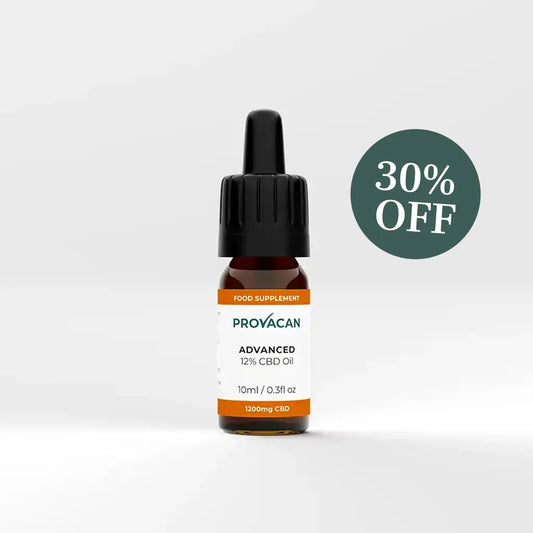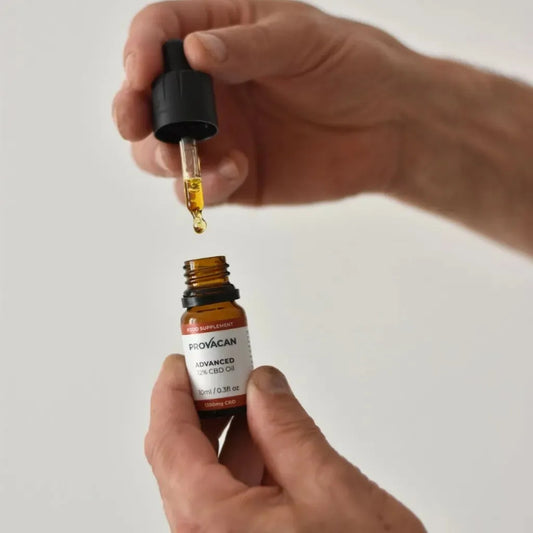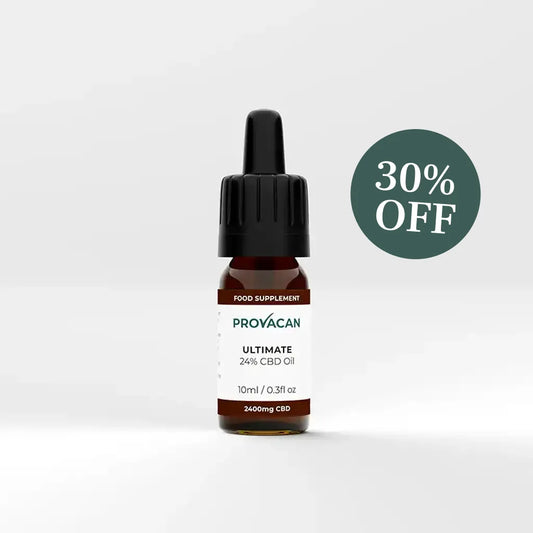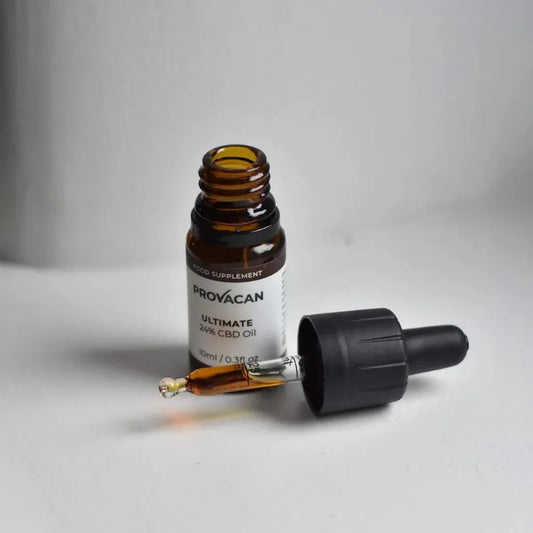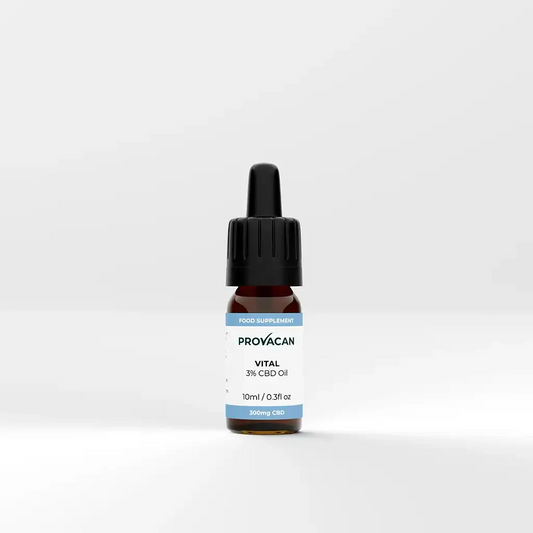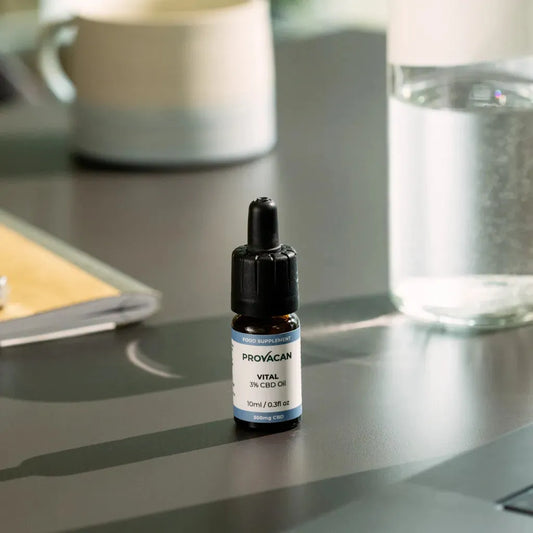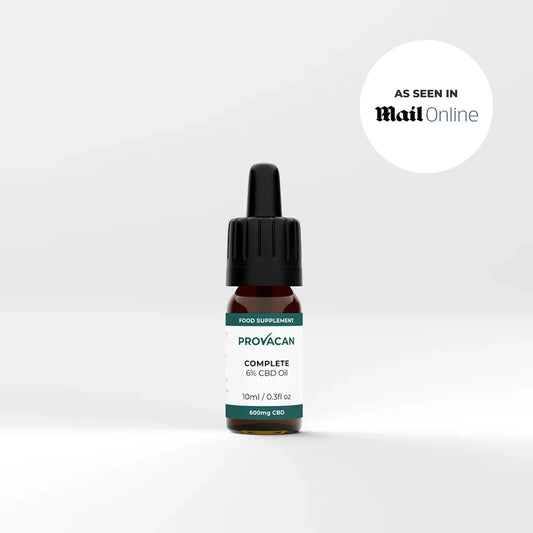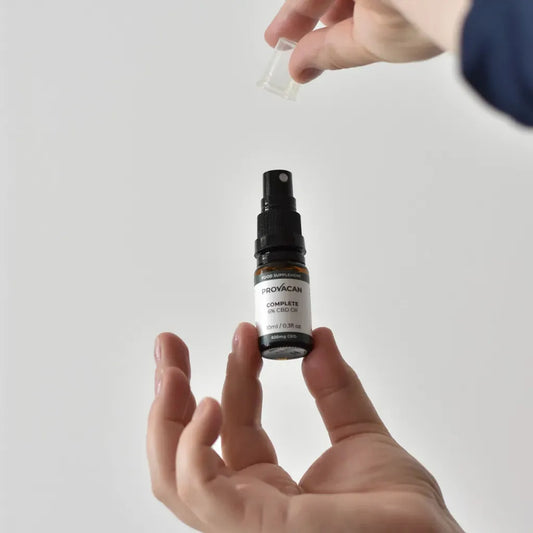Key Takeaways:
- Understanding how CBD and Alcohol React Together is Important: Combining CBD and alcohol can result in varying effects, including possible amplified sedative properties and decreased cognitive functions.
- Research Suggests That There Could Be Benefits of Consuming Alcohol and CBD Together: Preliminary research suggests CBD might reduce some negative effects of alcohol, such as liver damage and neurodegeneration, while potentially lowering blood alcohol levels.
- More Research is Needed to Better Understand the Interactions: The interaction between CBD and alcohol remains under-researched, and it’s recommended to approach their combination with caution and seek professional medical advice.
In recent years, the popularity of CBD has surged. While many people choose to use CBD for its potential health benefits, the question of how CBD can fit into your daily routines and lifestyles, including regular alcohol consumption, is important. Understanding how your body reacts to consuming both alcohol and CBD will allow you to make more informed decisions about your consumption of both products.
At Provacan, we understand the importance of informed choices, especially regarding substances that affect your health. Therefore, this article aims to shed light on the interactions between CBD and alcohol, drawing on the latest scientific research to offer clear, reliable guidance.
As consumers become more health-conscious, the conversation around combining CBD and alcohol grows. It’s important to demystify the effects of their interaction, allowing consumers to make more informed decisions about their health and well-being. In this article, we’ll explore what current research says about mixing these substances, helping you make choices that align with your wellness goals.
Understanding CBD: What Is It And How Does It Work?
Cannabidiol, commonly referred to as CBD, is a naturally occurring compound found in the cannabis plant. Unlike its counterpart THC (tetrahydrocannabinol), which is known for its psychoactive properties, CBD does not induce a high. This key distinction has contributed significantly to its rising popularity within the wellness community.
CBD works by interacting with the body’s endocannabinoid system (ECS), a complex network of receptors found throughout the body including the brain, organs, and immune cells. The ECS plays a crucial role in regulating various physiological processes such as mood, pain, sleep, and immune response. When CBD is introduced into the body, it interacts with the ECS by binding to or influencing different receptor sites which include CB1 and CB2 receptors. This interaction helps to modulate the bodily functions overseen by the ECS, potentially leading to reduced anxiety, alleviation of pain, and improved sleep, among other benefits.
Understanding Alcohol: Effects And Risks
Alcohol, a substance consumed globally, is known for its psychoactive effects that can alter mood and behaviour. Commonly ingested as a social lubricant, alcohol affects the central nervous system and can lead to both short-term and long-term health issues. Short-term effects of moderate alcohol consumption include lowered inhibitions, relaxation, and a sense of euphoria. However, excessive drinking can result in adverse outcomes such as loss of coordination, blurred vision, impaired judgment, and in severe cases, alcohol poisoning.
Long-term risks of consistent heavy drinking encompass a broad spectrum of health issues. It has been linked to an increased risk of developing chronic diseases such as liver disease, cardiovascular problems, and neurological damage. Additionally, alcohol is a known factor in the development of certain types of cancer, including liver, breast, and colorectal cancers.
Despite its widespread use and the perception of alcohol as a harmless leisure activity, understanding the potential risks is crucial. This becomes even more significant when considering mixing alcohol with other substances, such as CBD. The interactions between alcohol and other compounds can often enhance side effects or lead to unexpected health challenges.
By comprehensively understanding the impacts of alcohol alone, consumers can make informed decisions about their health and well-being. This knowledge is especially important for CBD consumers who value maintaining a wellness-oriented lifestyle and appreciate the need for informed substance use.
Exploring The Interaction Between CBD And Alcohol
When delving into the relationship between CBD and alcohol, it is crucial to understand the effects each component has on the body, both individually and when combined. CBD, or cannabidiol, is a non-psychoactive compound found in cannabis plants that has been widely recognised for its potential health benefits, including reducing anxiety and alleviating pain. Alcohol, on the other hand, is a well-known depressant that affects the central nervous system, leading to lowered inhibitions, relaxation, and, at higher amounts, potential health risks.
Research on the combined effects of CBD and alcohol is still in its early stages, but some studies suggest that taking CBD with alcohol may alter the effects of alcohol. For instance, a study published in the journal Psychopharmacology found that when participants consumed both CBD and alcohol, they reported significantly lower blood alcohol levels compared to those who consumed alcohol alone. However, both groups reported similar impairments in cognitive function and motor coordination.
Another point of interest is CBD's potential in reducing alcohol-related damage. Preclinical studies suggest that CBD may help protect against certain negative effects of alcohol, such as neurodegeneration and liver damage. A study in the Free Radical Biology and Medicine journal demonstrated that CBD could reduce liver inflammation and oxidative stress in mice that were given alcohol.
While these findings provide some insights, the interaction between CBD and alcohol in humans needs more comprehensive research to draw definitive conclusions. Consumers looking to combine these substances should do so with caution, particularly considering the varying effects that could emerge based on individual body chemistry and the amounts consumed.
For those who are conscious of their health and wellness, understanding the potential additive or counteractive effects of ingesting both substances is essential.
Possible Risks And Side Effects Of Combining CBD And Alcohol
Combining CBD and alcohol may raise concerns due to the potential for amplified effects. Here’s an overview of some risks and side effects that could arise when mixing these two substances.
Increased Sedation And Drowsiness
Both CBD and alcohol are known for their sedative properties. Alcohol is a central nervous system depressant, which can reduce anxiety, inhibit motor coordination, and decrease cognitive functions. CBD, while often used for its anxiety-reducing and calming effects, can also induce relaxation and drowsiness. When taken together, these substances might produce heightened sedative effects, leading to a significant decrease in alertness and motor coordination, potentially putting individuals at risk for accidents if they attempt activities like driving.
Potential For Greater Impairment Of Motor Skills
Alcohol impairs motor skills and decision-making abilities. Combining alcohol with CBD could potentially exacerbate these effects, leading to greater impairment. This is particularly concerning in scenarios that require precise motor skills or quick decision-making.
Uncertainty Due To Lack Of Research
The interaction between CBD and alcohol remains under-researched. Preliminary studies suggest various outcomes, but there is a lack of comprehensive data to draw definitive conclusions. This uncertainty represents a risk in itself, as individuals may react in unpredictable ways when mixing these substances.
Possible Impact On Blood Alcohol Levels
Some studies suggest that CBD could potentially affect the rate at which the body processes alcohol, potentially impacting blood alcohol levels. However, research in this area is still emerging, and it is unclear how significant this interaction might be.
Risk Of Compounded Effects
Both substances may amplify each other's effects, potentially leading to increased side effects like nausea, vomiting, or even emotional disturbances such as heightened anxiety or depression post-consumption. These compounded effects vary widely among individuals, depending on various factors including the amount consumed and personal tolerance levels.
Recognising these potential risks is crucial for anyone considering combining CBD and alcohol. It’s important to approach this combination cautiously, ideally under guidance from a healthcare professional, to mitigate any adverse effects.
Scientific Studies On CBD And Alcohol Interaction
Research on the interaction between CBD and alcohol is still evolving, with several studies suggesting varied effects when these substances are combined. A critical analysis of scientific literature sheds light on how CBD might influence the effects of alcohol.
One notable study published in the Journal of Psychopharmacology focused on the impact of CBD on alcohol-induced cognitive impairment. The researchers found that CBD could potentially offset some negative effects of alcohol on the brain, specifically in areas related to neurodegeneration and cognitive function. This suggests that CBD might exert a protective mechanism when consumed alongside alcohol.
Another research study explored the implications of combining CBD and alcohol on motor skills. The results, appearing in the Frontiers in Pharmacology, indicated that while alcohol typically impairs motor function, the addition of CBD did not exacerbate this impairment. Intriguingly, participants who used both substances reported lower levels of alcohol in their blood compared to those who consumed alcohol alone, pointing towards a possible moderation of alcohol absorption or metabolism by CBD.
Furthermore, a publication in Alcoholism: Clinical and Experimental Research examined the possible effects of CBD on alcohol-induced liver damage in mice. The study highlighted that CBD could help in reducing liver inflammation and oxidative stress, which are key contributors to alcohol-related liver damage. Although these findings are preliminary and derived from animal studies, they offer promising insights into the potential therapeutic properties of CBD in protecting against alcohol-induced liver injuries.
While these studies provide a foundation for understanding the interactions between CBD and your wellness when combined with alcohol, ongoing research is crucial. As always, at Provacan, we recommend consulting with healthcare professionals before mixing CBD with alcohol to ensure safety and efficacy tailored to individual health needs.
Can CBD Help With Alcohol Addiction?
Research into the interaction between CBD and alcohol is still emerging, yet some studies suggest the potential benefits of CBD in the context of alcohol addiction. One of the primary areas of interest is CBD’s purported ability to reduce cravings and stress, which are significant triggers for those struggling with addiction.
A study published in the journal Addictive Behaviors found that CBD could potentially alter the physical manifestations of alcohol dependence. It indicated that participants who received CBD treatment reported experiencing fewer alcohol-induced cravings and less anxiety. These factors are crucial because the reduction in cravings and anxiety can play a significant role in decreasing the rate of relapse.
Moreover, animal studies have provided insights suggesting that CBD may protect against some toxic effects of alcohol on the liver, such as fat buildup, inflammation, and liver cell damage. While findings in animal models don't translate directly to human scenarios, they offer promising avenues for further research.
It's important for consumers to understand that while the initial findings are encouraging, much more research needs to be done in this area to draw definitive conclusions. The research community continues to explore how CBD could be integrated into treatment protocols for alcoholism, examining its safety and efficacy over prolonged use and in various populations.
Given Provacan’s commitment to scientific research and high-quality CBD products, staying informed about the latest studies can help individuals make educated decisions about integrating CBD into their wellness routines, potentially aiding in managing conditions like alcohol addiction.
Final Thoughts
In exploring the interactions between CBD and alcohol, it's clear that while some preliminary research suggests possible benefits, there is still a vast area left to be studied. For consumers, particularly those who prioritise their health and wellness, understanding the effects of combining CBD and alcohol is crucial.
At Provacan, we are committed to your well-being, ensuring that our products meet the highest standards of purity and potency. Our approach is deeply rooted in scientific research, ensuring that every product we offer is both safe and effective.
Before mixing CBD and alcohol, we recommend consulting with a healthcare professional, particularly if you are new to CBD or have any underlying health conditions. As research evolves, Provacan will continue to provide updates and insights grounded in the latest scientific findings. Our commitment to your health and safety guides our innovation, and we strive to deliver CBD products that truly enhance your life. Remember, making informed choices about your health is paramount in maintaining overall wellness.
Read also:
Frequently Asked Questions On Mixing CBD And Alcohol
Can you mix CBD and alcohol safely?
While CBD (cannabidiol) and alcohol can be consumed together, it's important to do so cautiously. Both substances exert sedative effects on the body, which can potentially amplify each other. The extent of the interaction varies by individual, depending on factors such as body chemistry and the amounts consumed. Users should start with low doses to gauge their body's reaction.
What are the effects of mixing CBD and alcohol?
Mixing CBD and alcohol may enhance the effects typically associated with each on their own, such as relaxation and sedation. Some studies suggest that combining the two could potentially reduce the negative effects of alcohol, such as anxiety and neurodegeneration, however, more research is needed to fully understand these interactions.
Can mixing CBD and alcohol enhance relaxation?
Yes, mixing CBD and alcohol might enhance feelings of relaxation. Both substances are known for their relaxing effects, and when combined, these effects could potentially be amplified. However, excessive consumption could lead to increased sedation or other undesired side effects, so moderation is key.
Are there negative side effects to mixing CBD and alcohol?
Yes, there can be negative side effects when mixing CBD and alcohol. These might include increased sedation, dizziness, and impaired motor function. Each individual's tolerance levels vary, so it's important to proceed cautiously and be aware of how your body responds to the combination.
How does- CBD interact with alcohol in the body?
CBD interacts with the endocannabinoid system in the body, which plays a role in regulating various bodily functions like mood, pain, and sleep. Alcohol, on the other hand, impacts the central nervous system, inducing sedative effects. When taken together, CBD may influence how the body metabolises alcohol, potentially moderating some of alcohol's effects, though detailed studies are still needed to clarify these interactions.
Can CBD help reduce alcohol cravings?
Preliminary research suggests that CBD might help in reducing alcohol cravings as well as lowering the levels of physical withdrawal symptoms. Studies have shown that CBD can influence mechanisms in the brain related to substance use disorders, potentially making it a useful tool in addiction treatment and recovery efforts. However, more extensive human studies are necessary to confirm these effects.
Sources:
- Freeman, Tom P, et al. “Medicinal Use of Cannabis Based Products and Cannabinoids.” BMJ, vol. 365, 4 Apr. 2019, p. l1141, https://doi.org/10.1136/bmj.l1141.
- Consroe, Paul, et al. “Interaction of Cannabidiol and Alcohol in Humans.” Psychopharmacology, vol. 66, no. 1, Nov. 1979, pp. 45–50, https://doi.org/10.1007/bf00431988.
- Yang, Lili, et al. “Cannabidiol Protects Liver from Binge Alcohol-Induced Steatosis by Mechanisms Including Inhibition of Oxidative Stress and Increase in Autophagy.” Free Radical Biology & Medicine, vol. 68, 1 Mar. 2014, pp. 260–267, www.ncbi.nlm.nih.gov/pmc/articles/PMC4112960/, https://doi.org/10.1016/j.freeradbiomed.2013.12.026.
- Breit, Kristen R., et al. “Altered Motor Development Following Late Gestational Alcohol and Cannabinoid Exposure in Rats.” Neurotoxicology and Teratology, vol. 73, May 2019, pp. 31–41, https://doi.org/10.1016/j.ntt.2019.03.005. Accessed 4 Oct. 2020.
- Prud’homme, Mélissa, et al. “Cannabidiol as an Intervention for Addictive Behaviors: A Systematic Review of the Evidence.” Substance Abuse: Research and Treatment, vol. 9, no. 9, Jan. 2015, p. SART.S25081, https://doi.org/10.4137/sart.s25081.




